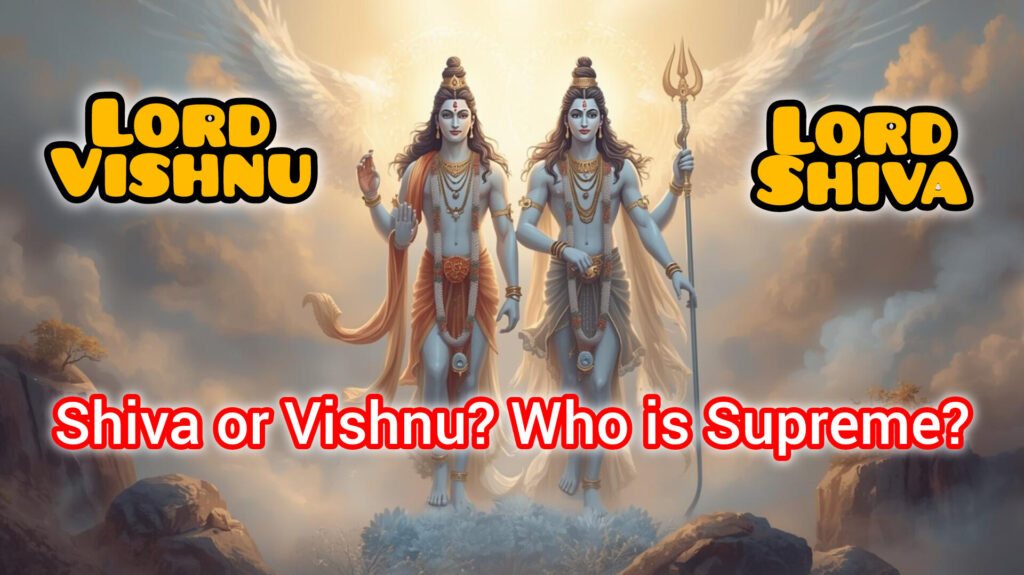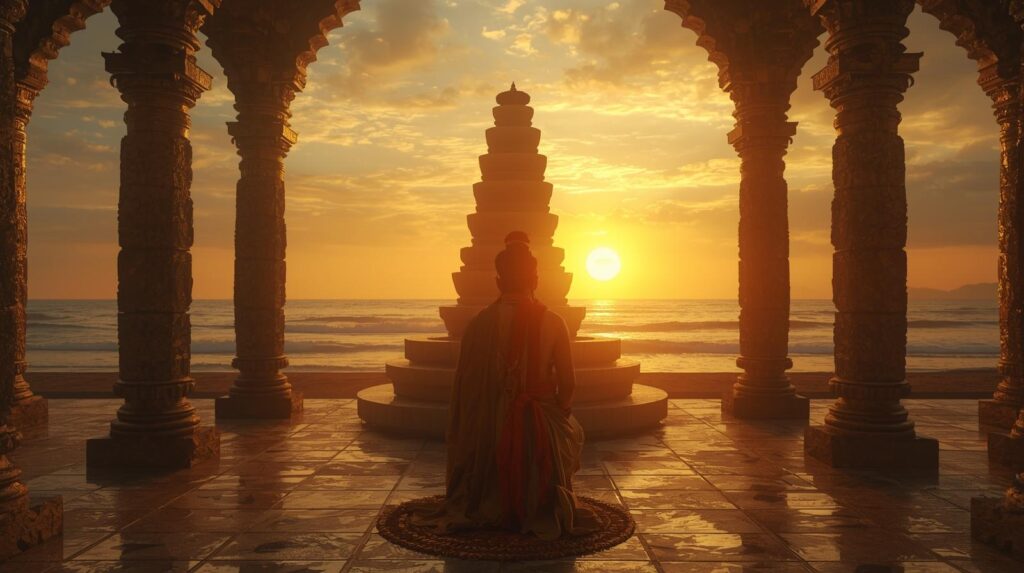
Shiva or Vishnu – Who is Supreme According to Hindu Scriptures?
Many people often ask: Who is supreme according to our scriptures – Lord Vishnu or Lord Shiva? This question has been debated for centuries in Hindu culture. Some followers believe Vishnu is supreme, while others believe Shiva is the highest.
But if we look deeply into the Vedas, Upanishads, Puranas, and Epics, we find a very balanced and beautiful answer. On thetruelyf.com, let us explore what the scriptures actually say.
Vedas: The Beginning of the Wisdom
The Vedas are the oldest texts of Hindu tradition. Here, we see both Vishnu and Rudra (later identified as Shiva) praised.
- Vishnu is described as the one who pervades the universe with his three great steps. This is known as the Trivikrama hymn.
- Rudra is described as the fierce yet kind Lord, the healer of the universe.
The Vedas do not declare only one as supreme. They honor both equally. This shows that from the very beginning, Hindu culture respected both as expressions of the Divine.
Upanishads: The Deeper Truth
When we move to the Upanishads, the teaching becomes more philosophical.
- The Shvetashvatara Upanishad calls Rudra (Shiva) the one without a second, the Supreme Being.
- The Narayana Upanishad declares Narayana (Vishnu) as the source from whom Brahma, Rudra, and Indra were born.
Different Upanishads highlight different aspects. But the underlying truth is that the Supreme is one reality. That one reality can be seen as Shiva or Vishnu.

Puranas: Devotion Takes Form
The Puranas are where devotion and storytelling become central. Here, we see a clear difference based on which Purana we read.
- Vaishnava Puranas such as the Vishnu Purana and Bhagavata Purana declare Vishnu as the supreme Lord. Shiva is shown as a great devotee or a form of Vishnu.
- Shaiva Puranas such as the Shiva Purana and Linga Purana declare Shiva as supreme. Vishnu is shown as emerging from him.
- Some Puranas like the Skanda Purana reconcile both, saying Vishnu and Shiva are two forms of the same Supreme Reality.
So, the Puranas do not give one fixed answer. They instead allow different communities to worship their chosen deity with full devotion.
The Epics: Ramayana and Mahabharata
The great epics also give us examples of mutual respect between the two.
- In the Ramayana, Lord Rama, who is Vishnu’s avatar, worships Lord Shiva at Rameshwaram before going to Lanka. This shows Rama’s devotion to Shiva.
- In the Mahabharata, Krishna, who is also an avatar of Vishnu, praises Shiva and receives the Pashupatastra weapon from him.
This means even the greatest incarnations of Vishnu respected and worshiped Shiva. Similarly, in some stories, Shiva shows respect to Vishnu. The message is clear – there is no fight between them. Both are honored.
Philosophical Traditions
When we come to philosophical schools, we see different interpretations:
- Advaita Vedanta (Shankaracharya) teaches that Brahman is the ultimate truth, without form. Shiva, Vishnu, Devi, all are names and forms of the same Brahman.
- Vaishnavism (Ramanuja, Madhva, Chaitanya) says that Vishnu or Narayana is supreme above all.
- Shaivism (Kashmir Shaivism, Shaiva Siddhanta) says that Shiva is the ultimate truth.
- Smarta Tradition says that all five deities—Shiva, Vishnu, Devi, Ganesha, and Surya—are equal forms of the one Supreme.
So, each tradition gives a different lens, but none deny the divinity of either Shiva or Vishnu.
The Deeper Meaning
If we read all the scriptures together, a common message appears. The divine truth is beyond one single form. It can be experienced as Shiva or as Vishnu.
The Rigveda clearly states: “Ekam Sat, Vipra Bahudha Vadanti” – “Truth is one, sages call it by many names.”
This means the fight over who is greater is not what the scriptures teach. The scriptures teach that both are divine, both are supreme, and both are expressions of the same ultimate reality.
How This Helps Us in Daily Life
In today’s world, people often argue online about whether Shiva is higher or Vishnu is higher. But the wisdom of the Shastras can guide us better.
- If you are a devotee of Shiva, see Vishnu as not separate from him.
- If you are a devotee of Vishnu, see Shiva as another form of the same divine.
- When you respect both, you are following the true spirit of Sanatan Dharma.
At thetruelyf.com, we believe spirituality should unite people, not divide them. Both paths lead to the same truth.
Conclusion
So, who is supreme according to Hindu scriptures—Shiva or Vishnu?
The honest answer is: both are supreme. In fact, they are not two different beings. They are two forms of the same Divine Reality.
The Vedas praise both. The Upanishads give each their place. The Puranas let devotees worship either as supreme. The Epics show mutual respect. And the philosophies remind us that all forms are one.
So instead of fighting, let us follow the wisdom of the scriptures. When you bow to Shiva, you are bowing to Vishnu. When you bow to Vishnu, you are bowing to Shiva. In the end, you bow to the same truth—the one eternal Brahman.
✅ This blog post is for thetruelyf.com readers who want to understand Hindu scriptures in simple language. May this knowledge bring clarity and peace to your spiritual journey.
- How to Live a Stress-Free Life Just by Remembering Dear God
- What is Love and How to Know if It is True Love | thetruelyf.com
- Shiva or Vishnu – Who is Supreme According to Hindu Scriptures? | thetruelyf.com
- Pranayama: A Simple Way to Take Care of Body and Mind | thetruelyf.com
- Life Is Hard, But You Can Change It With Your Thinking | thetruelyf.com
